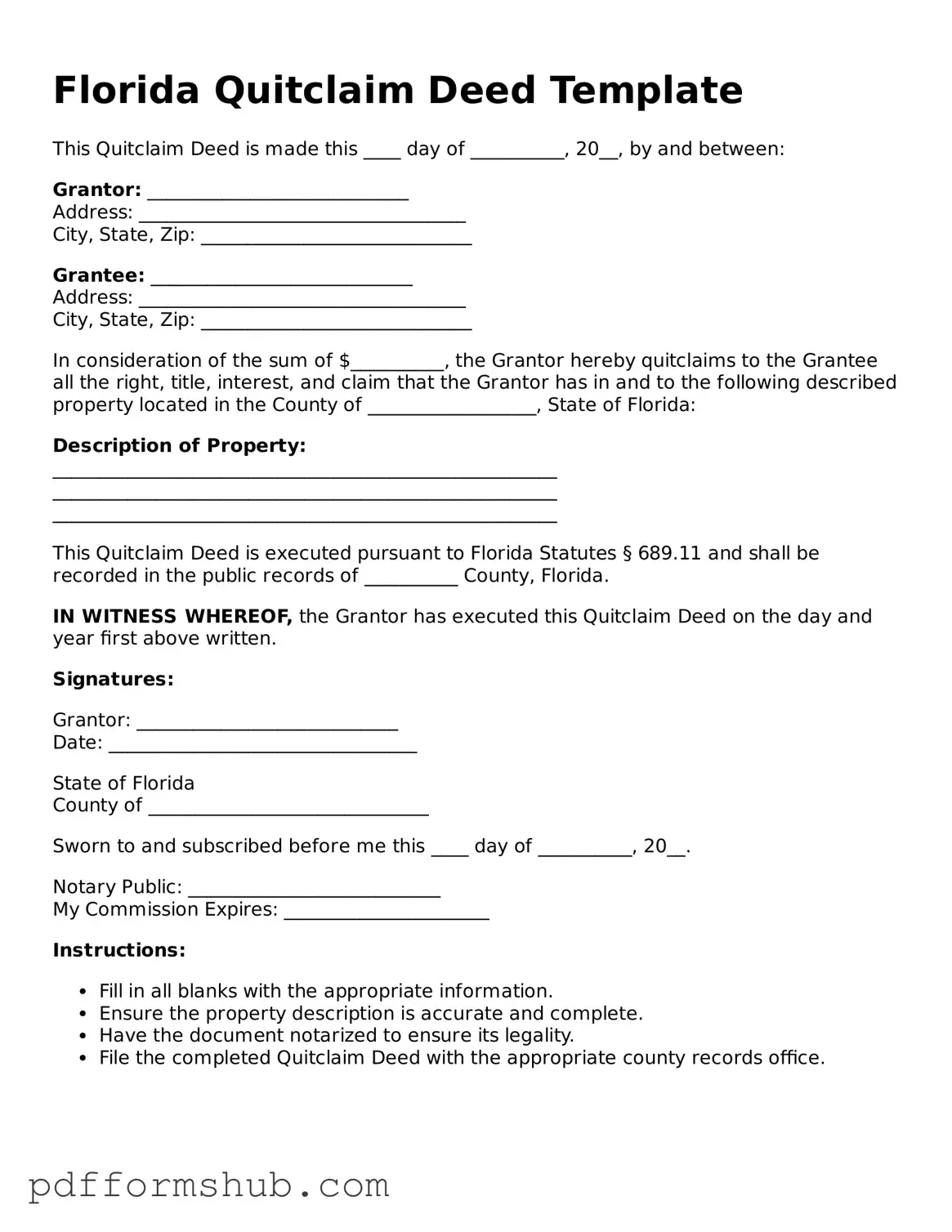Attorney-Verified Quitclaim Deed Form for Florida State
A Florida Quitclaim Deed form is a legal document used to transfer ownership of real estate from one party to another without any warranties. This type of deed is often used among family members or in situations where the grantor does not wish to make any guarantees about the property. If you're ready to transfer property ownership, fill out the form by clicking the button below.
Customize Form

Attorney-Verified Quitclaim Deed Form for Florida State
Customize Form

Customize Form
or
Free PDF Form
Short deadline? Complete this form now
Complete Quitclaim Deed online without printing hassles.